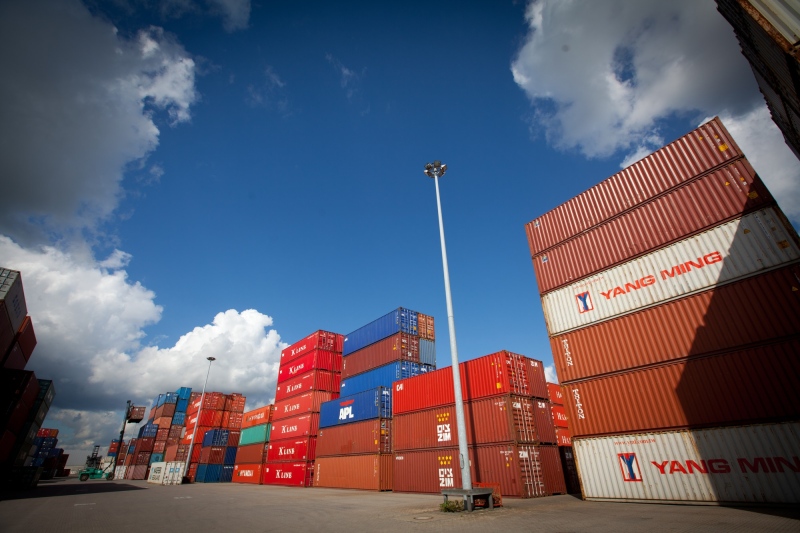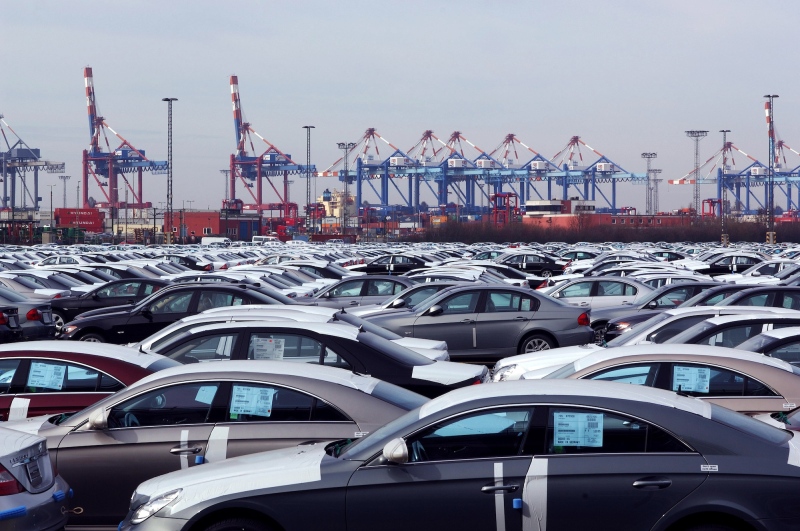Brexit and its consequences for the transport industry
BREXITWhat will Brexit mean for Bremen as a logistics hub?
How will the UK’s impending exit from the EU affect the logistics sector? Günther Hörbst, Managing Director of the Via Bremen Foundation, on the economic links between the United Kingdom and the EU.

After the British voters made their decision on Brexit in June 2016, Google published some notable statistics. The internet company reported the most common search terms entered by British users on the day following the result. First place went to “What does it mean to leave the EU?” In second place was “What is the EU?” That tells us two things about the decision. One is that facts obviously played very little part in the Brexit campaign. The other is that the British seem to have shown a spectacular degree of recklessness when taking their decision. As a recent study by the management consultancy firm Deloitte makes clear, the economic links between Britain and Europe are considerably stronger than previously thought – not to mention the fiscal connections. Major German companies employ around 400,000 people in the UK – about a quarter of these (96,000) work in logistics and transport. In 2016, German companies in the United Kingdom generated over €150 billion in revenue. The German automotive industry accounted for around €40 billion of this. According to the Deloitte figures, the United Kingdom is Germany’s third most important export market, worth €89 billion.
Consequences for the automotive industry?
The United Kingdom is an important trading partner for Bremen as well. The Bremen Statistical Office puts the value of goods exported to the UK or imported from there at €2.6 billion. The largest part of the exports consists of vehicles, at around 60 per cent. That illustrates the significance of Bremen as an automotive hub for trade relations with the UK. This is the area where experts deem a negative impact on the transport sector to be most likely. After all, Bremen is one of the most important global locations for the car industry, with the world’s largest Mercedes production site, associated supplier industries, distribution and customisation centres, and Europe’s largest automotive hub, which handles around 2.5 million vehicles annually.

Christian Kille, Professor of Logistics at Würzburg University of Applied Sciences, expects a further impact on logistics from the merger of PSA and Opel/Vauxhall. In his assessment, Vauxhall sites in the UK could suffer from the effects of synergies, leading to reduced transport volumes. What’s more, the logistics provider DSV currently controls the entire parts supply chain for US car manufacturer GM, Opel/Vauxhall’s present owner, centrally from the GVZ Cargo Distribution Centre in Bremen. However, the acclaimed logistics expert does not believe that Brexit will result in any serious slumps in the overall car business for logistics companies.
Let’s have a closer look at some hard facts. None of these are giving much cause for concern at the moment. The Logistics Indicator from BVL International (the Global Supply Chain Network) for the fourth quarter of 2016 is at its highest point since September 2011. In other words, the mood in the logistics and transport industry is very positive – despite Brexit, Trump and the uncertainties caused by the upcoming elections in France and Germany. Even the container shipping companies are buoyant after many years of gloom. There are currently more consignments than there is space on ships. For exports from northern European ports to Asia, shipping lines are now adding surcharges, and even then it is not unusual for containers to be left behind at the quayside.
Protectionism – a cause for concern
The greatest cause of concern for the logistics sector is the rising tide of protectionism. Brexit, and above all the election of Donald Trump as US president (“America first”) have boosted those factions who feel that globalisation is doing more harm than good. In the medium term, this trend towards nationalism could lead to higher tariffs and import restrictions. On a global scale, that would restrict transport routes – and at worst could lower consumer demand due to price rises. The resulting fall in the demand for goods would have a negative impact on the logistics and transport sector. However, this is just one possible scenario. No one actually knows whether things are going to go that far.
The fact is that even with a ‘hard’ Brexit – i.e. a complete withdrawal of the United Kingdom from its agreements with the EU – there would be a transition phase of two years. This would be followed by at least three more years until the UK has negotiated new bilateral agreements. So we are talking about a period of around five years, for which it is impossible to make specific predictions.

About the author
Günther Hörbst has been Managing Director of the Via Bremen Foundation, the location marketing platform of the logistics and port industries in Bremen and Bremerhaven, since 1 July 2016. He has also been Managing Director of the BHV (Bremische Hafenvertretung, or Bremen ports association) since 1 April 2016. Hörbst has a degree in political science, and has held a variety of management roles in regional and national media organisations over 20 years, most recently as editor in chief of transport journal Deutsche Verkehrs-Zeitung DVZ.
More information on the topics of maritime economy and logistics is available here or from Jörg Kautzner, Manager Logistics and Automotive, tel: +49 (0)421 361-32172, joerg.kautzner@wah.bremen.de
Success Stories
10 Leading Coffee Companies from Bremen
From trading to roasting to logistics – no one does coffee quite like Bremen. But who are the players driving the business in Germany’s coffee capital? Meet ten of them.
Learn moreBremen’s Economy in Figures: Statistics 2025
The State of Bremen is a strong economic hub. A look at the latest statistics highlights its economic strength — summarising key data such as cargo volumes, export performance, industry turnover, and more.
Learn moreMedium-Sized Companies in Bremen Showcasing the Full Range of the Local Economy
Medium-sized companies form the backbone of Bremen’s economy. They create jobs and produce goods that are in demand worldwide. Here is a selection of ten businesses that illustrate the diversity of Bremen’s economic landscape.
Learn more